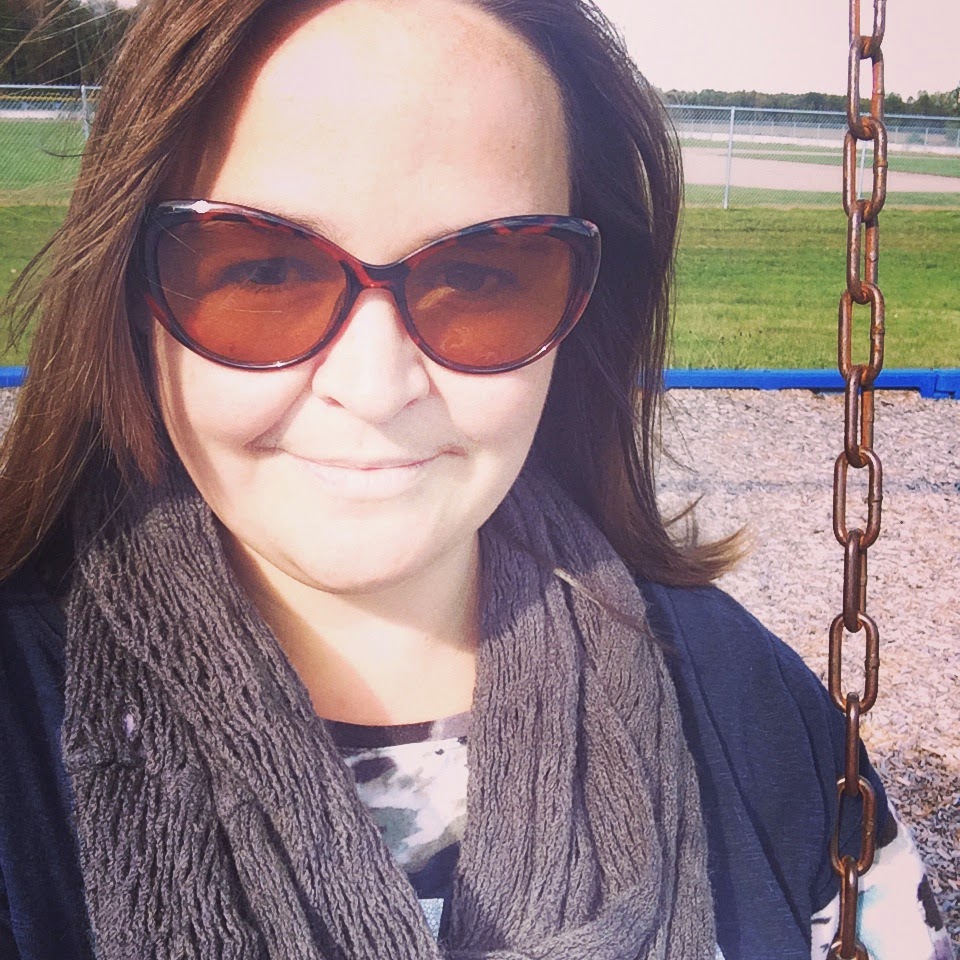Meet Holly Tellander!
Holly hails from Wisconsin where she lives with her husband and two kids -- she is currently working on her Young Adult/Magic Realism series! All of Holly’s work can currently be found on her website. She’s participating in the April A-to-Z Blogging challenge, so check in to see her progress.
And now for the questions!
---
JB: What’s your genre?
HT: I am currently writing the second book in a YA/MR trilogy, but I don't know that I've found my forever genre. I'm realizing more and more than I really like writing self-help and parenting articles and babbling about whatever happens to catch my fancy. The process of stringing words together effectively and lyrically is what I love most of all, so any genre that allows me to do that (and air out my inner know-it-all) is a genre that works for me.
JB: Do you think your genre of writing informs your process?
HT: I actually don't. I think whatever character or message has formed in my head is the one that has the most impact on my process.
JB: Do you have a writing routine or any rituals?
HT: Hmmmm.... I do not have a particular time of day when I usually write, but I am certainly more productive when I write in the morning. I do have a writing spot, but I share it with my techie husband who collects gadgets and screens the way some people collect stray animals. Someday, I will remedy this situation.
I am the mother of two small children, so having 'space' at all is a luxury. I'd never get anywhere if it had to be a 'certain way' :) Kids.... the gift that keeps on giving!
I do like music, but if feels distracting. The best background noise for me is to have my windows open, a breeze blowing in and to hear the sound of people doing their business outside; lawn mowers mowing, kids shrieking, cars whizzing by, dogs barking... that's my kind of white noise.
I usually brew myself a hot cup of green tea with a dollop of honey whenever I start to write. If things go well, that's where it stays. If things go downhill, I have no choice but to break open a bag of Kettle Chips to entice my muse to come back to me.
JB: When do your best ideas come to you? What are your best brainstorming times?
HT: Definitely when I am walking my dog without a notebook in sight ;)
JB: Who/what inspires you?
HT: People watching!!
JB: Now let’s talk process. How do you organize your ideas before writing?
HT: Oh dear, you are highlighting my shortcomings ;0 I have a dedicated writing journal for jotting down ideas when they come to me, but I hardly ever have it with me. The truth is that I have notes spread all over the place; random slips of paper in my purse, notebooks, disconnected word documents and even the notepad feature on my phone. This is an area that needs attention... *slinks off to round up wayward notes and compile them.... or eat Kettle Chips....*
JB: Is there any particular way you like to structure your work while writing?
HT: I've just discovered how much I like outlining and I am using it for my second novel. The system I used for my first novel would be best described as 'walking into a pitch black room with a weak flashlight and taking teeny tiny steps to make my way across the vastness of the plot and only making it out alive by the skin of my teeth after 8 jabillion re-writes'. I like outlines much better.
JB: When you’re on the road and ideas come to you, what do you usually do?
HT: Dictate them into the voice-to-text feature on my phone and pretend I'm a business bigwig who will have someone come along and type them up and leave them on my desk by the end of the day.
JB: How do you handle revisions?
HT: I confess to eating more Kettle Chips in the rewrite stage. I also need a dedicated beta reader at that point to help me see things clearly. Dedicated beta readers are a godsend, are they not?
JB: Is there any advice you can give to writers struggling to get the words flowing?
HT: Take a break. A real break. We go around telling ourselves that we have to keep our noses to the grindstone, that we have to keep up with all the other writers out there is social media land, and if we don't we end up feeling like we aren't 'real' writers. But the truth is that everyone needs downtime. No one can produce in a vacuum. And when I say 'really' take a break, I mean take as long of a break as you need without pummeling yourself with guilt. (I find that only slows down the process of getting back to work for me.) Also - exercising works wonders, cuddling with someone is always useful and did I mention the amazing power of Kettle Chips? (I think it's the extremely gratifying crunch.)
JB: And most importantly: why do you write?
HT: Simply put, I write because I have something to say :) I put my heart and soul into it when I have some to spare, and I try not to beat myself up on the days that I don't.
----
Thank you, so much, Holly, for participating in the Process Project! It is so valuable to hear about the process of writers at all stages of their careers! Don't forget to check out Holly’s progress of the April A-Z blog challenge, and keep an eye out for her YA/MR series! You can stay up-to-date with her progress on her blog and these other websites!
Twitter | Instagram | Facebook | Goodreads | Holly Tellander (Blog/Website)



.jpg)





